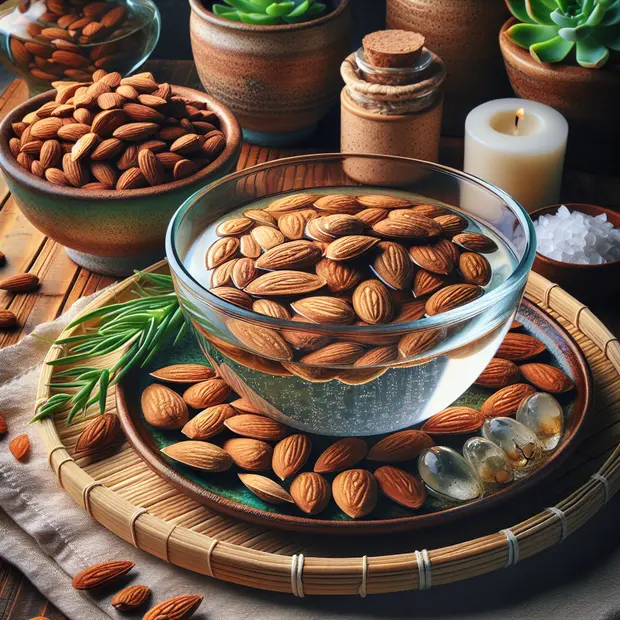The Importance of Patience in Our Life
Discover the essence and science of patience, its role in our health and wellness, and strategies to cultivate it in our daily lives in this in-depth article.

In this fast-paced world we live in, patience is often seen as a virtue that is no longer necessary. With technology at our fingertips, delivering what we want when we want it, the art of waiting patiently has become increasingly obscured. Yet, it remains one of the most important keys to health and wellness. So, let's delve into the essence of patience, the science behind its benefits, and how to cultivate it in our daily lives.
The Essence of Patience
Patience, a virtuous quality often under-appreciated, can be defined as the inherent ability to tolerate delay, trouble, or suffering without succumbing to frustration or agitation. It is a powerful trait that empowers us to navigate through challenging situations without losing our calm or composure. More than a mere attribute, it's a state of mind, a way of life that requires sustained effort and practice.
At the heart of patience lies the ability to remain rooted in the present moment, regardless of unfavorable circumstances or undesirable outcomes. Even when the tides of life are not in our favor, patience teaches us to remain unruffled, to maintain our equanimity. It prevents us from becoming prisoners of our anxiety and stress and allows us to respond to situations rather than react impulsively.
The true beauty of patience is that it imparts on us the understanding and acceptance that things of value take time to come to fruition. Our modern world, characterized by instant gratification, often makes us forget this significant truth. Patience gently reminds us that the journey to achieving our goals, dreams, and aspirations is just as important, if not more, than the actual end result.
Indeed, patience is more than merely waiting for things to happen. It’s about understanding the natural flow of life, the rhythm of the universe, and aligning ourselves with it. It’s about embracing the slow and steady path to success, the path that’s less about the destination and more about the journey itself.
The Intriguing Science of Patience
The concept of patience has been studied in depth by numerous researchers, leading to some fascinating revelations about its impact on both our physical and mental wellbeing. Various studies conducted in the recent past have demonstrated that exhibiting patience can indeed play a significant role in influencing our health in a positive manner.
One such study that stands out was published in the highly esteemed Journal of Personality. This study put forth an interesting conclusion suggesting that individuals who exhibit higher levels of patience tend to experience lower rates of depression. The study further revealed that such individuals are also less likely to encounter negative emotions in their day-to-day lives. This information could be a game-changer in how we understand and deal with mental health issues.
But the benefits of patience extend to physical health as well. The same study found that patient individuals are less prone to certain health issues such as hypertension. The study further observed that such individuals have lower levels of inflammatory markers in their blood. This is a remarkable discovery, considering that inflammation is often linked to numerous chronic diseases.
While more research is needed to fully understand the correlation between patience and health, these findings provide compelling evidence of its potential benefits. The concept of patience, often underestimated, might hold the key to a healthier and happier life.
The Personal Perspective of Patience
In my personal journey, I've found that patience holds a transformative power that can alter our lives in unimaginable ways. There was a time in my life when I was dealing with relentless, chronic pain. It was an unwelcome guest that seemed to have moved in permanently and refused to leave. In those moments of constant suffering, patience became my lifeline. It provided me with the capacity to accept my situation, to bear the weight of my circumstances without letting anxiety and frustration pull me down into the depths of despair.
My journey to recovery was not easy. It was a long, winding road fraught with challenges and setbacks. There were moments of hope, moments when it seemed like the pain was finally receding, only to have it return full force, like a wave crashing upon the shore. But in these moments, patience was my guiding light. It reminded me that healing was not a straight path, but a journey filled with ups and downs.
The act of maintaining patience, even when the road ahead seemed dim and uncertain, allowed me to navigate through my situation with a certain grace. It imbued me with resilience, a strength that allowed me to endure and to keep moving forward, even when my circumstances seemed impossible. Without patience, I believe I would have been completely overwhelmed by my situation. But instead, patience allowed me to face it head-on and work diligently towards recovery.
Through this personal experience, I learned that patience is more than just waiting. It’s about maintaining a positive attitude, believing in your ability to overcome, and persevering even when the path becomes difficult. It's about acceptance, understanding, and resilience in the face of adversity. Indeed, patience was not just a virtue to me—it was a beacon of hope in a sea of pain and uncertainty.
How to Cultivate Patience
The good news is that patience can be cultivated. Here are some strategies:
- Practice mindfulness: Mindfulness is essentially the practice of being fully present in the moment, which can help us to be more patient. Try incorporating mindfulness into your daily routine, either through meditation, yoga, or simply by paying more attention to your surroundings.
- Progress not perfection: Instead of focusing on the end result, learn to enjoy the process. This shift in mindset can help us to develop more patience.
- Manage your stress levels: High stress levels can make us more impatient. Try to incorporate stress management techniques, such as deep breathing or progressive muscle relaxation, into your daily routine.
Patience is more than just a virtue; it's a pathway to a healthier and more peaceful life. In the race of life, it’s not always about who finishes first, but who enjoys the journey. So slow down, breathe, and practice patience. Your mind and body will thank you.
🌿
Category: Mindfulness & Relaxation
Join the community
Related Articles

The Importance of Patience in Relationships
Patience is often touted as a virtue, yet it is frequently o...

Importance of Patience in Customer Service
Are you ever lost for words when a customer complaint spiral...

The Significance of Patience in Customer Service
Ever had that one customer who just couldn't be satisfied ...
Latest Articles

The Role of Minerals in Rock Formation
Welcome to another enlightening article on HeavenRelax.com, ...

Importance of Patience in Customer Service
Are you ever lost for words when a customer complaint spiral...

The Importance of Soaking and Peeling Almonds
If you've ever wondered about the healthiest way to consume ...
Comments
No comments yet. Be the first to comment!